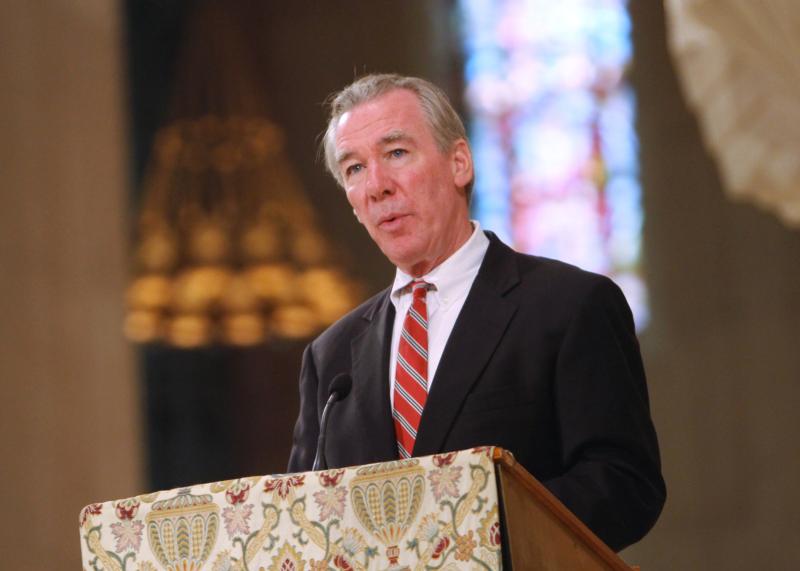
By Mike Latona
Catholic News Service
ROCHESTER, N.Y. (CNS) — A pharmacy in Olympia, Washington, loses its court challenge to a state law requiring the owners to violate their religious beliefs by supplying emergency contraceptives.
A Colorado court cites discrimination in ruling against a baker who refused on religious grounds to make a wedding cake for a same-sex couple.
A California bill proposes to deny significant state funding for religious colleges and universities if they don’t remove perceived discriminatory policies against lesbian, gay, bisexual and transgender students, faculty and staff.
These recent cases reflect a decreasing ability for people in this country to exercise their constitutional right to religious freedom, according to John Garvey, president of The Catholic University of America in Washington.
“This political and cultural climate has become increasingly hostile toward people of faith,” Garvey, one of the nation’s leading scholars on religious liberty, told a gathering of approximately 300 people during his presentation, “The New Religion Wars,” at Sacred Heart Cathedral in Rochester.
Garvey, who delivered the second annual Catholic Courier lecture Sept. 15, described a trend of increasingly coercive actions toward those who, because of their religious beliefs, refuse to submit to the established order — even though, he said, our nation’s Founding Fathers emphasized the freedom to practice such beliefs.
He acknowledged that the religious freedom concerns in the United States don’t equate to the violence perpetrated against people of faith in several other countries, where people pay for their religious beliefs in bloodshed. Nor, Garvey said, does the American situation match the loss of life among early Christian martyrs by decree of the Roman emperors.
Yet Garvey noted that the root causes of such circumstances are similar and — amid declining percentages of Christians and growth in the numbers of “Nones,” or those with no religion at all — that he foresees greater potential problems ahead.
Garvey encouraged his audience at the cathedral to stick to their religious convictions in the face of powerful opposition, saying, “If we want not only to win religious liberty battles but to convert our secular culture, we need to commit to living out the Gospel with the same zeal shown by the Christians in the early Church.”
He said the best modern-day example of such zeal has been exhibited by the Little Sisters of the Poor in their protest of the Affordable Care Act’s contraception mandate for employers. In Zubik v. Burwell — commonly known as the Little Sisters of the Poor case, which The Catholic University of America joined as co-plaintiff — the U.S. Supreme Court unanimously voted May 16 to return the case to the lower courts.
Garvey has led Catholic University of America since 2010 and is a noted constitutional scholar and author. He recently was appointed by Pope Francis to the board of directors of the Vatican’s Agency for the Evaluation and Promotion of Quality in Ecclesiastical Universities and Faculties. He thus becomes the first person from the United States to serve with the agency, which was created in 2007 by Pope Benedict XVI to ensure high standards in Catholic institutions of higher learning.
Garvey writes frequently about religious freedom in his column, “Intellect and Virtue.” In introducing Garvey to the lecture audience, Rochester Bishop Salvatore R. Matano thanked him “for all you have already done to preserve the freedom of the Catholic Church in the United States in these most difficult times.”
Garvey’s lecture was attended by numerous priests and other leaders in the Diocese of Rochester as well as community officials, Courier board members, CUA alumni of and representatives from the interfaith community.
Mohammad Rumi, interfaith committee chair and a trustee at the Islamic Center of Rochester, said he agreed with Garvey’s comments as they relate to the struggles his Muslim brethren face in openly following their beliefs.
Rumi added that Garvey presented “a unique perspective — not only being a practicing Catholic, but also as a lawyer and president of a Catholic university.”
Latona is a staff writer at the CATHOLIC COURIER, newspaper of the Diocese of Rochester.






